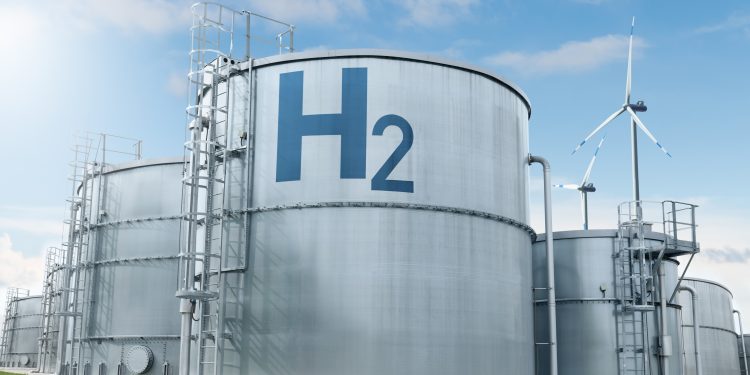The imperative for sustainable practices is reshaping industries worldwide, with logistics and the supply chain sector being no exception. At the forefront of this transformation is the green hydrogen plant nestled in the burgeoning smart city of Saudi Arabia, representing a leap towards an eco-friendly future.
Harvested from renewable sources, green hydrogen stands as a beacon of hope against the environmental damages of fossil fuels. It holds the potential to revolutionize the logistics and supply chain field, which has traditionally leaned on hydrocarbon resources, by offering a path to enhanced sustainability and compliance with strict environmental guidelines.
In the heart of the Saudi desert, the Neom green hydrogen plant is pioneering a shift to minimize ecological footprints. By harnessing wind and solar power for hydrogen production, the facility guarantees a carbon-neutral process, setting a new standard for sustainable supply chains.
When utilized as fuel, green hydrogen’s only emission is water vapor, positioning it as a superior substitute to diesel and gasoline. Logistical enterprises are taking note, with some already incorporating green hydrogen to power their fleets, resulting in a substantial reduction of greenhouse gas emissions. This transition aligns with corporate social responsibility goals and satisfies mounting regulatory requirements.
Leading the pack, DHL has embarked on a pilot project testing hydrogen fuel cell delivery vans, showcasing the practicality and advantages of green hydrogen in reduced emissions and operational efficiency. Other industry giants such as UPS and FedEx are also venturing into hydrogen fuel cell technology for their delivery vehicles, signaling a collective shift towards sustainable fuel alternatives.
The scope of green hydrogen extends to warehouse forklifts and even touches on the maritime and aviation sectors, illustrating its potential to redefine transport within the global logistics infrastructure.
However, the integration of green hydrogen into the sector is not without its hurdles. Developing the requisite infrastructure, such as production sites, storage systems, and refueling stations, is a formidable challenge with considerable upfront costs. Moreover, the transition necessitates technological adaptations in logistics operations and workforce training to handle new hydrogen technologies.
In parallel, managing the nuances of producing, storing, and distributing green hydrogen complicates supply chain dynamics, especially in areas with limited renewable resources.
Despite these challenges, governments are recognizing the value of green hydrogen and are fostering its growth through supportive policies, incentives, and grants. These measures alleviate financial pressures on logistics companies, propelling the shift towards green hydrogen.
Collaboration across the industry, with technology providers and governmental bodies, is another avenue being explored. These partnerships are crucial for sharing knowledge, resources, and best practices, thereby stimulating innovation and reducing costs.
Technological advancements within the green hydrogen domain are also accelerating, offering logistics companies an opportunity to gain a competitive advantage by early adoption and positioning themselves as sustainability front-runners.
Ultimately, the long-term benefits of integrating green hydrogen into supply chains are indisputable. Despite the steep initial investments, the ensuing operational costs are projected to be lower, thanks to the superior efficiency of hydrogen fuel cells. Additionally, these vehicles require less maintenance, ensuring prolonged operation with minimal downtime, and contribute to energy independence by reducing reliance on imported fossil fuels.
Companies that opt for green hydrogen not only bolster their environmental stewardship but also fortify their brand image, potentially attracting eco-minded customers and investors. Furthermore, staying ahead of stringent emissions regulations positions these companies advantageously for future market developments.
As the green hydrogen plant in Neom progresses towards full operation, logistics companies that have already embarked on this sustainable journey will find themselves well-equipped for the low-carbon economy of tomorrow, recognized as pioneers in a world where sustainability is not just valued but expected.









